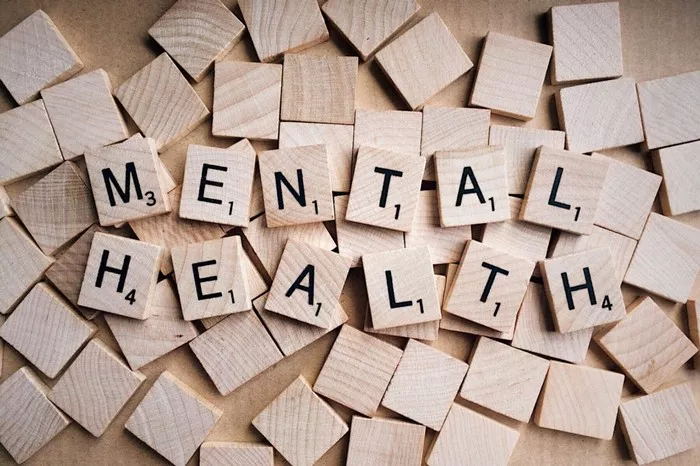In today’s fast-paced and ever-changing world, individuals face an increasing number of challenges, including mental health struggles, work-related stress, social pressures, and personal crises. These challenges can significantly impact an individual’s mental, emotional, and physical well-being. As the importance of mental health awareness grows, psychological support has become more crucial than ever. Understanding the need for psychological support and its benefits can lead to better decision-making for those who are struggling and create a healthier, more supportive society for all.
This article explores why psychological support is vital, what it entails, and how it can contribute to overall well-being. It will also discuss the different types of psychological support available and how they can help people cope with various life challenges.
Understanding Psychological Support
Psychological support refers to the professional guidance and help offered to individuals facing emotional or psychological distress. It can come in various forms, including therapy, counseling, psychoeducation, and support groups. The aim of psychological support is to help individuals navigate through life’s difficulties by improving mental health, developing coping strategies, and fostering resilience.
Psychological support is essential in several aspects of life, including emotional well-being, relationship dynamics, and managing mental health disorders. Whether an individual is coping with grief, dealing with workplace stress, or managing mental health conditions such as depression or anxiety, psychological support provides a safe space for individuals to discuss their feelings, gain insight into their experiences, and receive expert advice on how to improve their situation.
The Role of Psychological Support in Mental Health
1. Enhancing Emotional Well-Being
One of the primary functions of psychological support is to enhance emotional well-being. It helps individuals understand and regulate their emotions, leading to a more balanced and positive outlook on life. Emotional well-being is crucial for overall health as it influences how individuals respond to stress, form relationships, and face daily challenges. Psychological support helps to identify unhealthy emotional patterns and replace them with more constructive responses, which can significantly reduce feelings of helplessness and distress.
2. Reducing the Impact of Mental Health Disorders
Psychological support is especially important for individuals living with mental health conditions. Disorders like depression, anxiety, and post-traumatic stress disorder (PTSD) can significantly affect a person’s ability to function in daily life. Therapy and counseling offer effective tools for managing symptoms and improving quality of life. Professionals trained in psychological support can provide cognitive-behavioral techniques, mindfulness practices, and emotional regulation strategies that can reduce the severity of these conditions.
For individuals with depression, therapy helps them break free from negative thought cycles, while for those with anxiety, it provides strategies for managing overwhelming thoughts and feelings. In cases of PTSD, therapy offers a safe space for individuals to process traumatic experiences and work through them at their own pace. By addressing the root causes of mental health struggles, psychological support plays an essential role in healing and managing symptoms.
Improved Relationships and Communication Skills
1. Strengthening Interpersonal Relationships
Psychological support isn’t just for individuals struggling with mental health disorders. It is also vital for enhancing the quality of interpersonal relationships. Whether in a marriage, family setting, or workplace, effective communication is essential for healthy relationships. Psychological support helps individuals develop better communication skills, resolve conflicts, and navigate complex emotions. It promotes empathy, understanding, and emotional intelligence, which are key components in maintaining strong, healthy relationships.
2. Couples and Family Therapy
Couples and family therapy are types of psychological support designed to address relational issues and improve family dynamics. Therapy can help partners understand each other’s needs, expectations, and communication styles. It also provides tools for resolving conflicts in a healthy, constructive manner. For families, therapy can address issues like parent-child conflicts, sibling rivalry, or challenges related to blending families.
By offering a neutral space for all parties to express their concerns, therapy helps strengthen relationships and prevent unnecessary breakdowns in communication. It also provides a support system for families experiencing stress or crises, such as the loss of a loved one or the diagnosis of a serious illness.
The Importance of Psychological Support for Children and Adolescents
1. Addressing Early Mental Health Challenges
Psychological support is not just for adults; it is equally important for children and adolescents. The adolescent years are particularly challenging, as teenagers experience significant emotional, social, and cognitive changes. During this period, they may struggle with self-esteem issues, peer pressure, academic stress, and difficulties with identity development. Psychological support helps young individuals navigate these challenges, providing coping strategies, emotional support, and guidance.
For children, early intervention is crucial when it comes to mental health issues. When children face difficulties such as anxiety, depression, or behavioral problems, psychological support can provide them with the tools they need to express their emotions healthily and develop strong coping mechanisms. Early intervention can prevent these issues from escalating into more significant mental health concerns later in life.
2. Fostering Resilience in Adolescents
Adolescents, in particular, are at risk of engaging in risky behaviors due to emotional and social pressures. Psychological support plays a vital role in helping young people build resilience. Through therapy or counseling, they can develop healthy coping mechanisms and problem-solving skills that serve them well throughout their lives. Psychological support helps teens understand their emotions and impulses, leading to more thoughtful decision-making and reducing the likelihood of risky behaviors like substance abuse or self-harm.
Psychological Support in the Workplace
1. Reducing Stress and Burnout
The workplace can be a significant source of stress, especially in high-pressure industries or work environments. Prolonged exposure to stress can lead to burnout, decreased productivity, and poor mental health. Psychological support in the workplace is essential for addressing these issues. Employees who receive psychological support can better manage work-related stress, maintain a healthy work-life balance, and feel more supported by their employers.
2. Promoting Employee Well-Being
More companies are recognizing the value of providing psychological support for their employees. This support can come in the form of Employee Assistance Programs (EAPs), mental health days, counseling services, or workshops on stress management and resilience. Organizations that prioritize mental health show their commitment to their employees’ overall well-being, which can lead to a more positive and productive work environment.
The Benefits of Psychological Support for Self-Development
1. Building Coping Skills
Psychological support helps individuals build essential coping skills for handling life’s inevitable challenges. These coping mechanisms allow individuals to approach problems with a sense of control, reducing feelings of helplessness. By learning new ways to cope with stress, difficult emotions, or unexpected changes, individuals can enhance their ability to adapt to challenges and improve their overall resilience.
2. Fostering Personal Growth
Psychological support encourages individuals to engage in self-reflection and self-awareness. Therapy or counseling allows individuals to explore their values, goals, and life experiences in a safe and supportive environment. This process of self-discovery can foster personal growth and provide individuals with a better understanding of their strengths, weaknesses, and desires. By promoting personal growth, psychological support helps individuals become more confident, self-assured, and capable of making informed decisions about their lives.
Psychological Support in Crisis Situations
1. Dealing with Loss and Grief
Loss, whether due to the death of a loved one, the end of a relationship, or another significant life event, can be overwhelming and emotionally challenging. Psychological support is essential during these times of crisis. Grief counseling and therapy provide individuals with the emotional tools and strategies they need to cope with loss, process their feelings, and begin the healing journey.
Support groups can also offer a sense of community for individuals who are grieving, as they provide a space to share experiences and gain comfort from others facing similar challenges. Whether it’s helping individuals work through the stages of grief or teaching them how to manage the emotions associated with loss, psychological support is a vital resource in times of crisis.
2. Coping with Trauma
Traumatic experiences, such as abuse, accidents, or natural disasters, can leave deep emotional scars. Psychological support is crucial in helping individuals recover from trauma. Trauma-informed therapy provides a safe and supportive environment for individuals to process their experiences and regain a sense of control over their lives. Psychological support in these situations helps individuals rebuild their sense of safety, self-worth, and trust.
Conclusion
Psychological support is an essential tool for maintaining mental health and emotional well-being. From managing stress and improving relationships to coping with mental health disorders and crisis situations, psychological support offers a wealth of benefits for individuals and communities alike. It helps people cope with the challenges of life, build resilience, and develop coping strategies that lead to healthier, more fulfilling lives.
As society continues to place greater emphasis on mental health, it is vital to recognize the significance of psychological support in fostering overall well-being. By seeking professional help when needed and supporting those who are struggling, we can create a culture of mental health awareness and acceptance that benefits everyone.































